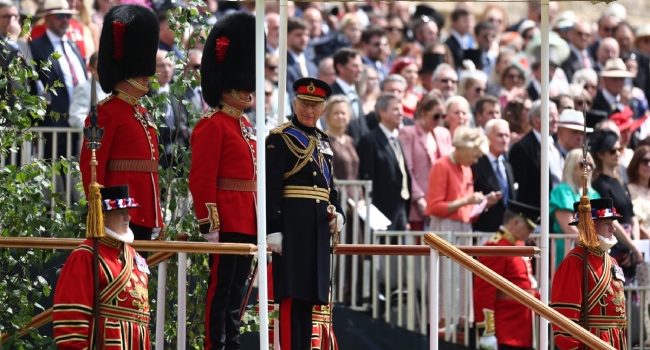David Beckham’s long-cherished dream of receiving a knighthood has finally come true, capping off decades of transforming himself into a global figure far beyond the football pitch. King Charles III included Beckham on his birthday honours list on Friday, officially bestowing the title that many had expected would come sooner rather than later.
For David Beckham, the knighthood is the result of years spent carefully cultivating his image at the crossroads of “sport, fashion, and business.” As Marie Agnes Parmentier, a marketing professor at the University of Montreal who has studied Beckham’s career, told AFP, the honour “reinforces his image as a respectable, committed, and, first and foremost, British man.”
She added that the title could open even more doors for the 50-year-old ex-footballer, “particularly in diplomatic, charitable or political spheres.”
David Beckham’s career beyond football
Although Beckham retired from football in 2013, he had started planning for life after the game well before hanging up his boots. In his 2023 Netflix documentary Beckham, he admitted, “I knew my career was going to end at some point and I wanted to have a career after football.”
During his playing days, Beckham secured endorsement deals with leading fashion and beauty brands, building a fanbase that crossed generations and nationalities. As Parmentier explained, he became “a pioneer,” successfully cracking the US market — something few English players had done before.
His journey wasn’t without risks. In the 1990s, when English football was still largely dominated by traditional, tough-guy culture, Beckham’s fondness for fashion — including his famous sarong at the 1998 World Cup — and his ever-changing hairstyles drew tabloid headlines. Yet rather than damage his reputation, the media attention only fueled his celebrity status.
Nearly 30 years on, Beckham continues to capitalise on that fascination. He recently debuted his first collection for Hugo Boss, co-owns the Inter Miami football club, operates the production company Studio 99, and has served as a UNICEF ambassador for two decades. Sociologist Ellis Cashmore noted that Beckham is now “better known not for football, but for being Beckham, the brand,” which The Times values at £500 million ($676 million).
From villain to national treasure
Despite his success, David Beckham’s rise has not been without setbacks. His infamous red card against Argentina during the 1998 World Cup turned him into, as he recalled, “the most hated man in England.”
“I find it hard to talk through what I went through because it was so extreme. The whole country hated me,” Beckham said. “Wherever I went, I got abused, every single day.”
The British press was brutal, with headlines like “10 Heroic Lions, One Stupid Boy” (Daily Mirror) and “You’re Just A Joke Becks” (Daily Mail). But Beckham rebounded spectacularly. Within a year, he helped Manchester United to an unprecedented treble—winning the Premier League, FA Cup, and Champions League—and came second in the Ballon d’Or voting.
David Beckham’s redemption arc reached a peak in 2002, when he scored the decisive goal against Argentina at the World Cup, turning him from scapegoat back into a national hero.
The royal family gradually embraced him too, inviting him to both Prince William and Kate Middleton’s wedding in 2011, and Prince Harry and Meghan Markle’s in 2018.
Although previous rumours of a knighthood failed to materialise, Beckham’s image was burnished further in 2022 when he joined the public queue for nearly 12 hours to pay his respects to Queen Elizabeth II, while other celebrities faced criticism for skipping the line.
Since then, many observers saw it as only a matter of time before David Beckham would be addressed as “Sir David.”



